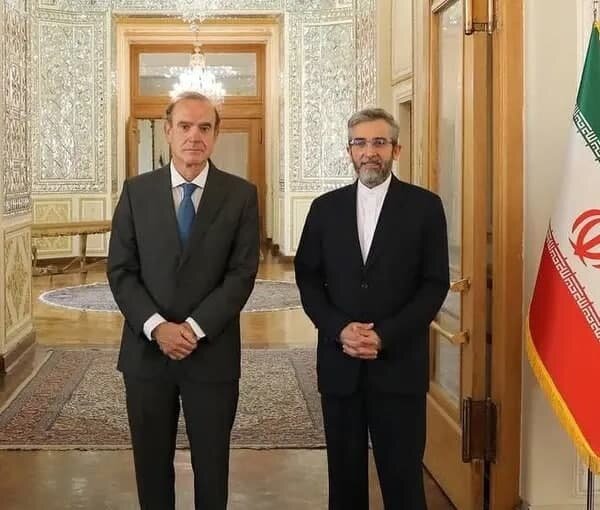Iran set the stage for "result-oriented" talks

TEHRAN — In his recent consultations with the Chinese and Russian foreign ministers, Iranian Foreign Minister Hossein Amir Abdollahian has expressed Tehran’s desire to resume the Vienna talks to revive the nuclear deal “swiftly”.
The remarks by Amir Abdollahian shows that Iran is firm to revive the deal, but is the United States firm too?
On November 3, Iran’s Deputy Foreign Minister for Political Affairs Ali Baqeri Kani announced that talks to revitalize the 2015 nuclear deal, officially called the Joint Comprehensive Plan of Action (JCPOA), will begin on November 29.
"In a phone call with @enriquemora_, we agreed to start the negotiations aiming at removal of unlawful & inhumane sanctions on 29 November in Vienna," Baqeri tweeted on late Wednesday.
Previously, Iranian Foreign Ministry spokesman Saeed Khatibzadeh had announced that the exact date will be set after further consultations with the JCPOA Joint Commission and P4+1 group – the four permanent members of the UN Security Council plus Germany.
“The exact date was supposed to be set after further consultations between Iran and the P4+1, especially our Chinese and Russian friends,” he said in his weekly press briefing on November 1.
On November 6, the Iranian foreign minister and his Russian counterpart consulted over the phone on the mechanism to revive the JCPOA.
Amir Abdollahian stated that Iran is studying the background and process of the previous negotiations in Vienna, and specified that Iran will pursue its demands robustly in the forthcoming negotiations.
Iran’s chief diplomat pointed out that there should be no doubt in the seriousness of the Iranian side in the talks and the need for all parties to return to their obligations.
Referring to the new U.S. sanctions against Iran, Amir Abdollahian stated that although Iran is skeptical of the Americans’ intentions, if they fully return to their obligations and do not make further demands, then Iran will return to its JCPOA obligations and will implement them all.
He also noted that Iran is cooperating with the International Atomic Energy Agency (IAEA) with goodwill and seriousness.
Amir Abdollahian also emphasized the need for the IAEA chief to refrain from taking political positions, stressing that Iran will continue technical cooperation with the IAEA.
Lavrov, on the other hand, said that Moscow has always stressed the need to stop the U.S. destructive actions against the JCPOA.
In another important phone call on November 6, Amir Abdollahian consulted with Wang Yi, his Chinese counterpart.
He expressed hope the United States and the European signatories to the nuclear deal will enter the Vienna talks with a realistic approach so that an agreement is reached “swiftly.”
He added that the U.S. cannot push ahead with its failed maximum pressure policy and economic terrorism and at the same time claim it wants talks and an agreement.
For his part, the Chinese foreign minister welcomed continuation of the nuclear talks and announced Beijing’s support for them.
Wang blamed the U.S. for the obstacles to the implementation of the nuclear deal. He also expressed hope that the United States will compensate its mistake by fully removing the anti-Iran sanctions so that the negotiations will produce good results in light of Iran’s positive approach.
Meanwhile, IAEA Director General Rafael Grossi is set to visit Iran, although the date has not been officially announced yet. Reportedly, the visit will take place before the IAEA Board of Governors’ meeting on November 24.
Iran is absolutely determined to proceed with “result-oriented” negotiations. The main question is this: Is the United States ready?
Perhaps Biden and his team can answer this question by lifting the sanctions irreversibly.
